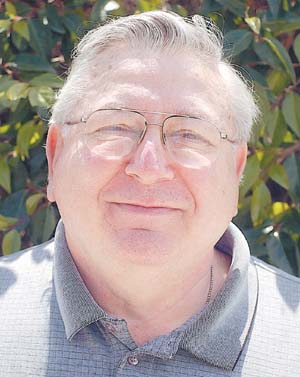A recent Guest View in the Free Lance made serious charges that
Gavilan College mispent the district’s Measure E bond funds,
approved in 2004. The article went into detail, but don’t rely on
the Independent Citizens’ Oversight Committee Report to provide the
answers, because they are not there. In fact, not much of anything
is there but top-level numbers.
A recent Guest View in the Free Lance made serious charges that Gavilan College mispent the district’s Measure E bond funds, approved in 2004. The article went into detail, but don’t rely on the Independent Citizens’ Oversight Committee Report to provide the answers, because they are not there. In fact, not much of anything is there but top-level numbers.
The report issued by the oversight committee is useless for determining if the district fulfilled its promises. The situation highlights the general problems with powerless citizen committees, which are the latest prop designed to con a mistrusting public into increasing public funding – too often ill spent.
Measure E was a big money deal, $108 million, and it had overwhelming community support. Promises were made and a committee was formed to be a watchdog. According to the resolution by the Gavilan Board of Trustees, the committee was to monitor all bond expenditures and “ensure funds were spent as promised and specified.”
The current one-page, one-sided, “Measure E – 2010 Report to the Community” for July 1, 2008 – June 30, 2009 is beautifully laid out, and provides almost no detail on how more than $38-million – 35 percent – of the total Measure E funds were spent. Nor does it compare those expenditures and priorities with the promised programs. With interest, the $38 million will cost local taxpayers $70 million.
For that kind of money, we deserve more than the two lines that cover the most of the spending, “Services /operating expenditures: $9,624,989” and “Capital outlay: $28,374,205.” The report lists completed projects ranging from tennis court repairs through interim housing to land purchases in Coyote Valley and San Benito County. We are left to wonder how much did each cost and how did that square up with the original list of “Proposed Facilities Projects” used to sell the bond measure to the public?
Then there is this, from the trustee’s adopted resolution – “In [an unexpected slowdown in development], bond money will be spent on only the most essential of the projects listed above. The District will work with the Citizens’ Oversight Committee on prioritizing those projects in the event factors beyond the District’s control require that project be reconsidered.”
To be honest, the Measure E committee has problems similar to Hollister’s sales tax Measure T committee. People often take the job in good faith only to discover that some committee members will go along with anything to get along with the administration and, in any case, the committee has no power or legal standing. Most just revert to rubber-stamping anything put in front of them, it’s human nature.
What’s the answer? The first rule is always – let the buyer beware. All that counts is what’s in the full ballot proposal, that’s the contract. Side promises, drafts, verbal assurances, even campaign mail is meaningless.
There are still pitfalls. In the case of Measure T, tax collections went into the General Fund. Once the money was in the General Fund all separate accounting was just smoke and mirrors, it could be spent like every other dollar. That’s how “additional services” morphed into two raises, one retroactive, for city employees.
The next issue is who selects the watchdog? In too many cases those being watched get to appoint those who will do the watching. That’s too cozy for good management.
Finally, no one is afraid of a toothless watchdog, it may bark, but just barking rarely brings results. Experienced bureaucrats know that in a few months or a year, the public’s attention will be elsewhere. Watchdogs with a bite – like having the veto power on spending – are more effective and they exercise more responsibility.
Gavilan owes the public some direct answers and the public needs to reconsider whether or not toothless watchdogs are effective insurance against empty promises or hidden agendas.
Marty Richman is a Hollister resident.










